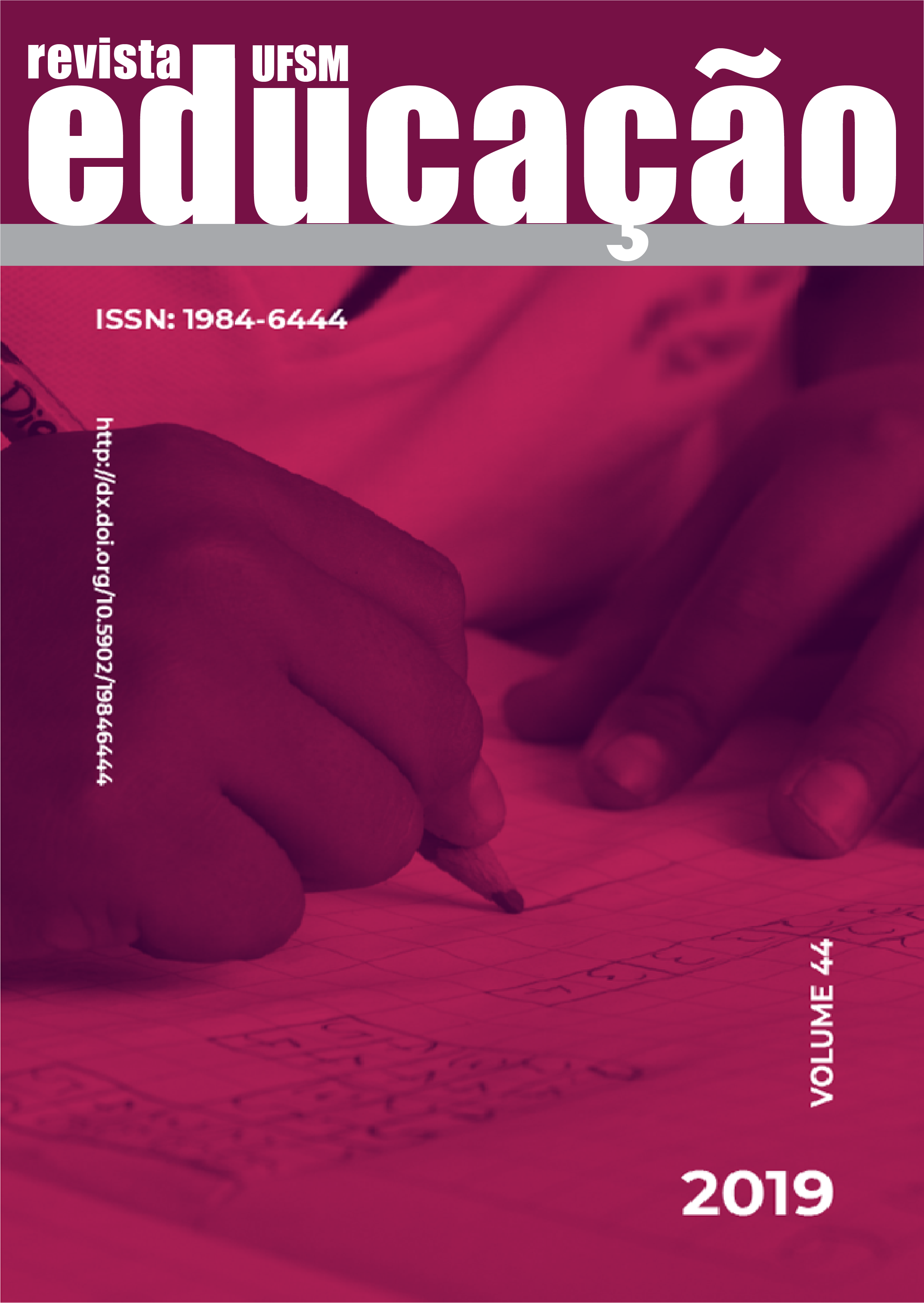Aesthetic-Environmental Education in Brazil (Based on Pablo René Estévez’s legacy)
DOI:
https://doi.org/10.5902/1984644427516Keywords:
Aesthetic perspective of Environmental Education, Aesthetic-Environmental Education in Brazil, Aesthetic sustainabilityAbstract
This study, whose focus is Aesthetic-Environmental Education (AEE), an emerging area in value Education, aims at researching its development in Brazil, based on Pablo René Estévez’s work at the Universidade Federal do Rio Grande – FURG, RS, Brazil. Therefore, from a dialectical materialist perspective, the aesthetic orientation of Environmental Education (the origin of AEE) is studied, its groundbreakers are defined and the aesthetic sustainability of the human condition is analyzed. Estévez´s main contributions to Brazilian Education are highlighted. Finally, the incipient, but significant, character of AEE, in terms of whole personality development, conceived in the association between the emotional mind and the rational one – a milestone in the teaching-learning process in contemporary schools – is outlined.
References
BORIEV, Y. Estética. Moscú: Progreso, 1969.
ESTÉVEZ, P.R. et al. La revolución estética en la educación. La Habana:
Editorial Pueblo y Educación, 2004a.
__________. La Educación Ambiental en el enfoque integral del trabajo
educativo: la CEEA. Santa Clara: Facultad de Cultura Física
“Manuel Fajardo”, 2004b.
__________. Proyecto Eco-Estética. Rio Grande: FURG, 2005.
__________. A alternativa estética na educação. Rio Grande: Editora da
FURG, 2009.
__________. (Org.). A Educação Ambiental em perspectiva estética. Rio
Grande: Editora da FURG, 2011.
_________. Curso 30: “Experiencias de los instructores de arte en las
instituciones educativas cubanas”. Pedagogía 2013, Palacio de
Convenciones de La Habana, 4-8 de febrero de 2013. La Habana:
Sello Editor Educación Cubana, 2012.
__________. Estesia y estética en la educación: la estética y el
socialismo del siglo XXI. Staarbrüguen, Alemania: Editorial
Académica Española, 2013.
_________. Hacia una estética de la convivencia. La Habana: Editorial
Félix Varela, 2017.
ESTÉVEZ, P.R.; BILLIG MELLO, E.; SALOMÃO DE FREITAS, D.P. Proyecto
"A Educação Estético-Ambiental nos cursos de graduação da
Universidade Federal do Pampa" - EEAUNIP. Bagé: UNIPAMPA,
GADAMER, H.G. Estética y hermenéutica. Madrid: Editorial Tecnos, 2ª
edición, 1998.
HORKHEIMER, M. Crítica de la Razón Instrumental. Buenos Aires: El
Ateneo, 1973.
KAGAN, M. La educación estética y artística en la sociedad socialista
desarrollada. Leningrado: Znanie, 1984a.
__________. Lecciones de Estética Marxista-Leninista. La Habana: Arte y
Literatura, 1984b.
MARX, C. El Capital. t.1. La Habana: Ediciones Venceremos, 1965.
__________. Manuscritos Económicos y Filosóficos. La Habana: Editora
Política, 1969.
__________. Obras Escogidas. t. 2. Moscú: Progreso, 1965.
MATURANA R., H. Emociones y lenguaje en Educación y Política. 4. ed.
Santiago de Chile: CED (Centro de Estudios del Desarrollo),
Colección Hachette-Comunicación, 1991.
MERLEU-PONTY, M. Fenomenologia da Percepção. São Paulo: WMF
Martins Fontes, 2011.
MONTERO, G. et al. La Educación Estética del Hombre Nuevo. La Habana:
Editorial de Ciencias Sociales, 1987.
MORIN, E. Os Sete saberes necessários à educação do futuro, 2 ed. São
Paulo: Cortez; Brasília DF: UNESCO, 2000.
NETTO, L. Educação Estético-Ambiental: potencialidades do Teatro na
prática docente (Tesis de Doctorado). Rio Grande: PPGEA/FURG,
ROSENTAL, M.; IUDIN, P. Diccionario Filosófico. La Habana: Editora
Política, 1981.
SMOLIANINOV, I.F. La naturaleza en el sistema de la Educación Estética.
Moscú: Prosvieshenie, 1984.
SUJOMLINSKI, V.A. El nacimiento del ciudadano. Moscú: Joven Guardia,
TERRA SILVEIRA, W. O Fundamento Estético da Educação Ambiental
Transformadora. Curitiba: Appris, 2015.
Downloads
Published
How to Cite
Issue
Section
License
Declaration of originality
We declare that all articles present in the journal Educação (UFSM) are originals and were not submitted for publishing on any other publication, as a whole or a fraction. We also declare that, after being published by Educação (UFSM), a paper will not be submitted to another journal within two years. After this time, our journal transfers the publishing rights to the authors, with a permit granted by the Editorial Council.
We also acknowledge that the originals’ submission to Educação (UFSM) implies on a transference of copyright for physical and digital publishing to the journal. In case of noncompliance, the violator will receive sanctions and penalties predicted by the Brazilian Copyright Protection Law (n. 9610, dated 19/02/98).
Attribution 4.0 International (CC BY 4.0)
This license lets others remix, transform, and build upon the material for any purpose, even commercially, and copy and redistribute the material in any medium or format.

This work is licensed under a Creative Commons Attribution 4.0 International (CC BY 4.0)






